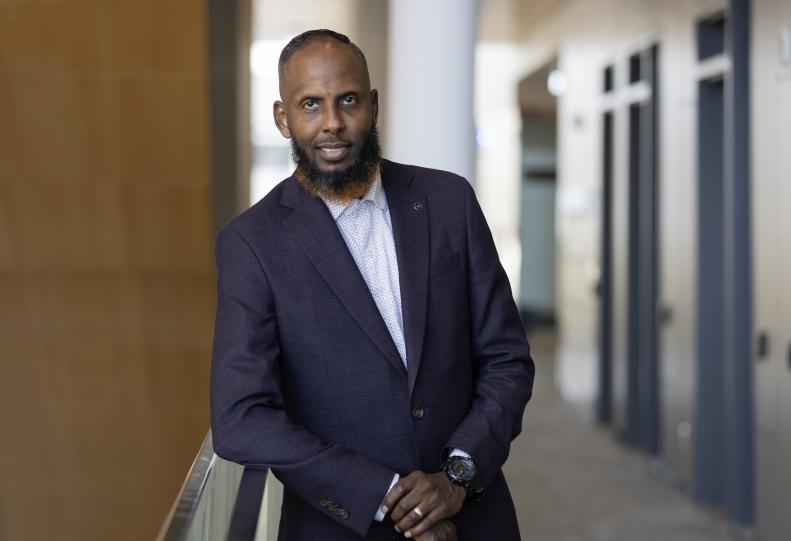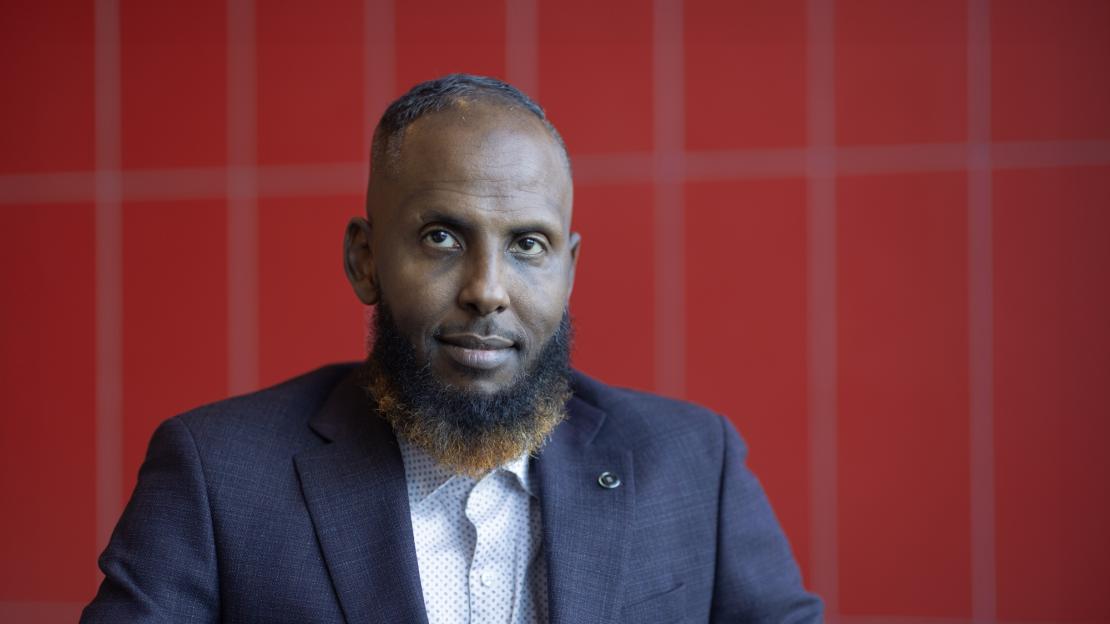Ahmed Ilmi’s research looks at the ways early educational experiences can be linked to social exclusion and identity formation among Black Canadian youth.
As a Black Muslim Canadian, he witnessed firsthand the lack of inclusion and support for Black Muslim youth in the classroom. So, it’s probably only natural he would want to explore the experiences of Black African Muslim youth living in the GTA.
For two years he conducted interviews with Canadian-born youth of Somali descent living in the Toronto neighbourhood of Rexdale, which is home to a large and vibrant Somali diaspora community. These youth have coined the unique term Say-Walahi, a fusion of English and Somali that loosely translates to “swear to God.” The term signifies their multiple identities as Canadian and Muslim of Somali descent.
Ilmi says the interviews highlight the anti-Black racism and Islamophobia this community experiences and reveals how this group has built their own unique identity that differs from previous generations.
We spoke to Ilmi, an assistant professor in in the Department of Global Development Studies at U of T Scarborough, about what he discovered and his broader goals for the project.
What inspired you to take on this project?
My goal is to study how colonial education manifests itself within the classroom, in community settings and across society. I look at marginalized Black students and the influences on Black boys, especially in the classroom. For my current work, there is a known concentration of Black Muslim youth of Somali descent in Rexdale and the community has had low education outcomes due to systemic challenges with white, Eurocentric education.
I was also thinking about who I am, in terms of belonging, exile, diaspora and identity. I came across this unique cultural location that is very fluid and dynamic, referred to as Say-Walahi. I started looking at questions of being Black, Muslim and African, and being a member of this diaspora within a broader Canadian identity.
What did you discover about the experiences of this community?
I discovered these youth are not sitting idly and waiting for their lives to pass them by. They are incredibly brilliant. They are resisting both racism and Islamophobia by building community and proudly expressing their identity. For example, it’s common to see them use Say-Walahi memes on social media, so they are proudly owning this.
My generation and previous generations didn’t share a similar experience. It's something very profound. This is where I argue this youth group is very creative. Not only did they navigate the multiple identities that they have in the world, but they were able to connect the dots to create a new way of speaking, articulating and being that is uniquely theirs.

What were your early experiences with education like in Canada?
We don’t push Black students to achieve their full potential through Education. For me, I was lucky enough to have some educators and professors that would eventually inspire me. Early on, so many told me ‘No,’ that it wasn’t going to happen. All it took was that one ‘Yes’ for me to move forward and keep going. Unfortunately, being the only Somali Canadian in the classroom is something that I had to live with for most of my academic career.
How can educators and the school system better understand and address the complex challenges faced by Black Muslim youth?
Although the youth I interviewed were all born here in Ontario, their identities are seen as foreign. It's not even a question of where you were born or where are you from, it's that their identities are not seen as Canadian.
At the moment, the school system we have is molded around a particular kind of identity that is white and European. When you don't fit into that mold, it's as if your identity is an afterthought. That doesn't give you much inspiration to become productive members of society. There are also low expectations of Black students. If the beginning of the conversation comes from a place of Black brilliance, then we can think about creating and constructing classroom spaces that foster Black excellence.
What impact do you hope your current research will have?
I hope this will inspire people to think about their own identity. I want educators to think about how they can reach and inspire these youth and believe in their potential.
There are also policy implications, such as creating more inclusive classrooms built around a multiplicity of identities. It also goes beyond how we fit in the overall Black Muslim African experience that is expressed only during specific times such as Black History Month. It includes looking at ways to validate and uplift these voices consistently and how we can work with that knowledge to transform society.
